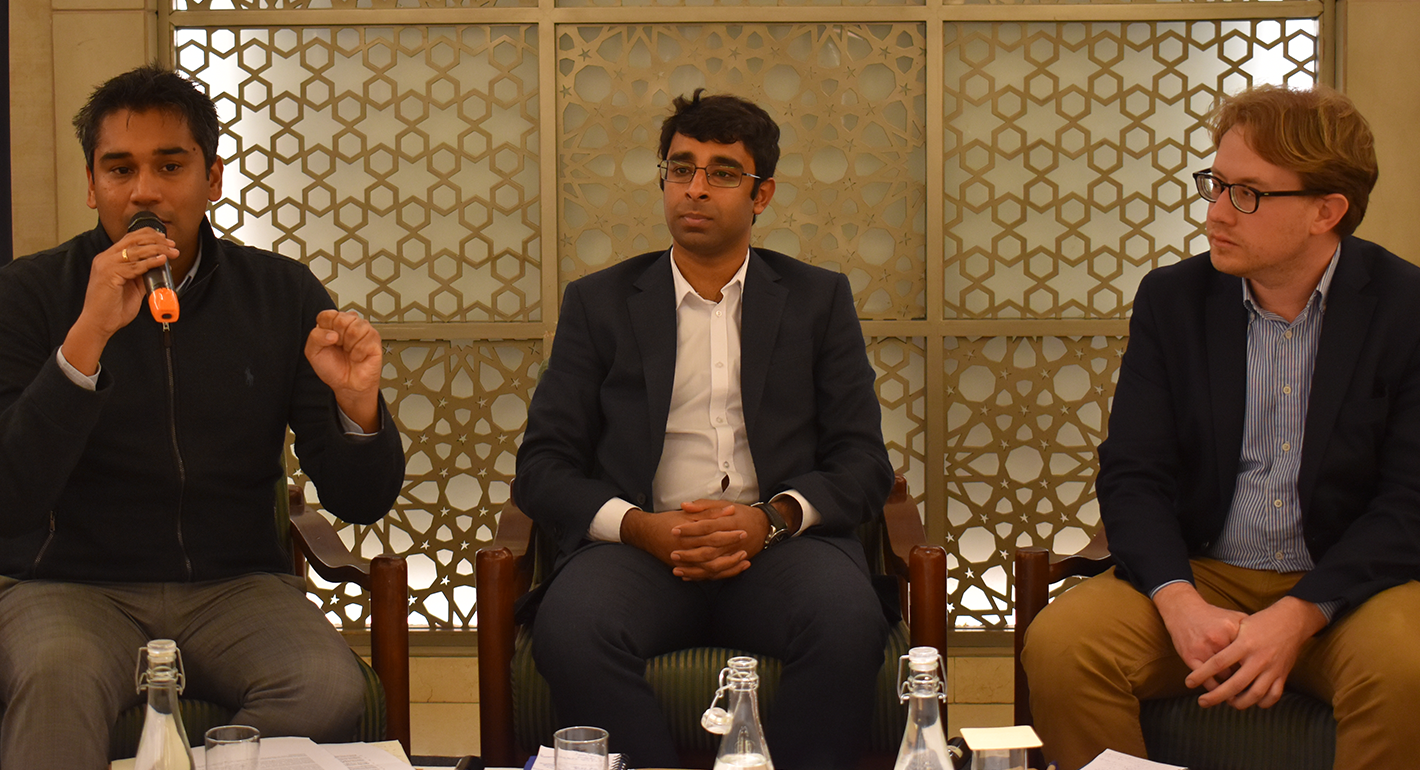Registration
You will receive an email confirming your registration.
Most studies looking at India’s foreign policy generally overlook how India’s complex domestic polity and bureaucratic apparatus shape the country’s outlook toward the world. Unlike works on India’s security policy which have built from and contributed to broader academic debates, studies on India’s foreign policy have failed to directly engage with concepts and theories developed by the sub-discipline of Foreign Policy Analysis (FPA). Why have these concepts and approaches not been consistently applied to the Indian context? In their special issue for India Review, titled “Unpacking the Black Box: The Making of India’s Foreign Policy,” Nicolas Blarel and Avinash Paliwal offer a conceptually grounded and empirically innovative reading of India’s foreign policy. Through case studies, the special issue aims to encourage a greater dialogue between FPA and the systematic study of Indian foreign policy, and suggest possible implications for policy debates over the process of Indian foreign policy-making.
Carnegie India hosted a discussion with Nicolas Blarel and Avinash Paliwal on the “black box” of India’s foreign policymaking process, based on their special issue. The discussion was moderated by Rudra Chaudhuri.
DISCUSSION HIGHLIGHTS
- Examining Processes, Not Outcomes: Participants highlighted that studies generally identify ideology, doctrines, and eminent personalities as the driving force behind Indian foreign policy. Rather than focusing exclusively on foreign policy actions or outcomes, because of which studies assume intentionality or rationalize decisions post-facto, participants stressed the importance of examining how Indian foreign policy is drafted. For this, they stated that it is important to assess the actors that provide information to decisionmakers, the quality of this information, and how decisionmakers process it. In particular, participants emphasized the need to consider the influence of domestic political factors such as partisan divides, coalition politics, or the outlook of the bureaucracy toward foreign policy issues. Participants explained that successive Indian governments have engaged with their coalition partners and the bureaucracy to not only pass foreign policy decisions, but also implement them. Overall, participants stated that the relationship between international politics and domestic politics is far more complex than previously believed. This, they argued, has been under-theorized and under-explained in the Indian context.
- Importance of Access: Participants highlighted that in order to deconstruct a foreign policy decision, scholars rely on a variety of sources such as national archives, oral histories, interviews, and journalist accounts. Scholars use a combination of these primary and secondary sources to triangulate conclusions and hence access to these sources is of paramount importance for conducting a study, participants explained. Participants drew attention to the difficulties scholars face in accessing these sources in India due to the lack of a systematic declassification process and the centralized nature of Indian foreign policymaking. Participants recognized that without archival access scholars are left with significant gaps in their study. They suggested that these gaps can be partially filled by conducting an extensive range of interviews.
- Smaller Stakeholders in India’s Foreign Policy: Participants noted that while most studies on Indian foreign policy only focus on central actors, lower level bureaucrats, who handle day-to-day processes in the government, gain a significant amount of leverage and input into policymaking in the event of a prolonged crisis. They further countered the idea that only national political parties have foreign policy agendas. Participants explained that over the last few years in India, the rise of coalition politics has provided regional parties with a greater say in foreign policy decisions and, in turn, they have developed foreign policy ideas and preferences. In particular, regional parties seem to play a decisive role in foreign policy decisions if the latter has regional salience or offers coalitional leverage, they stated. Participants also discussed center-state relations and noted that even if state governments are bypassed while making a foreign policy decision, they can affect its implementation. Apart from stakeholders that are located in India, participants also highlighted the role of the Indian diaspora in countries such as the United States, the United Kingdom, and United Arab Emirates. Aided by greater mobilization, they are now working toward pushing these countries to build closer relations with India, emphasized participants.
This event summary was prepared by Rahul Bhatia, a research intern at Carnegie India.
Speakers
Nicolas Blarel
Nicolas Blarel is an assistant professor of international relations at the Institute of Political Science, Leiden University in The Netherlands. He studies foreign and security policy-making, power transition, the politics of migration governance, and the international politics of South Asia. Blarel recently published The Evolution of India’s Israel Policy: Continuity, Change, and Compromise since 1922 (Oxford University Press, 2015) and co-edited with Sumit Ganguly and Manjeet S. Pardesi the Oxford Handbook of India’s National Security (Oxford University Press, 2018).
Avinash Paliwal
Avinash Paliwal is a lecturer in diplomacy and public policy at the Centre for International Studies and Diplomacy and the deputy director of the SOAS South Asia Institute. He is the author of My Enemy's Enemy: India in Afghanistan from the Soviet Invasion to the US Withdrawal (New York: Oxford University Press, 2017).
Moderator
Rudra Chaudhuri
Rudra Chaudhuri is the director of Carnegie India. His primary research interests include the diplomatic history of South Asia and contemporary security issues.
